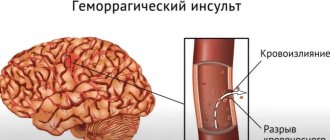Treatment of a nervous breakdown at the Brain Clinic is one of the priorities. This is due to the high psycho-emotional load of modern man. The nervous system of most people cannot stand it and it needs to be helped to cope and adapt to these stresses. We use the most modern hospital replacement methods of restorative medicine to stabilize a person’s neuropsychic activity.
In outpatient care and day hospital treatment, rehabilitation therapy of higher nervous activity is prescribed, which can be expressed in the use of various methods of psychotherapeutic, medicinal or physiotherapeutic assistance. If necessary, the techniques can be combined with each other in various versions.
Correct and complete diagnosis is the basis for curing a person from an existing illness.
Call +7(495)-135-44-02
We help even in the most severe cases, when previous treatment did not help. Our goal is to provide you with the correct medical assessment of your nervous breakdown and, above all, to put your mind at ease.
Diagnosis and treatment of nervous breakdown
Do not panic, these conditions can be successfully treated, especially when a person promptly seeks help from a specialist.
When receiving medical care, a qualitative assessment of the general condition of the entire human nervous system, and not just the mental sphere, is necessary. Therefore, the diagnosis of such conditions should be carried out by doctors of related specializations: a neurologist and a psychotherapist or a psychiatrist. The position of some doctors that in such situations only a psychotherapist or a psychiatrist is completely wrong. It is very important! It is necessary to determine the main true cause of the malfunction of the nervous system, and not just its mental component. Once the cause is correctly identified, the doctor can prescribe appropriate measures to get rid of it.
Unfortunately, nervous breakdowns can also pose hidden dangers. In some cases, they carry complications in the form of various bodily ailments, affecting various parts of the brain. Successful treatment requires a good diagnostic base, which Brain Clinic has. The outcome of the disease depends on the completeness and quality of diagnostic measures. We recommend starting treatment for a nervous breakdown as early as possible. It is not uncommon for a patient to only need a one-time visit to a doctor and follow simple recommendations at home.
Manifestation of a nervous breakdown
- temporary behavioral disorders;
- panic attacks;
- neuroses;
- phobias;
- depression (decreased mood);
- asthenic conditions;
- sexual disorders.
All of this is a list of symptoms of a person’s painful condition and are not final diagnoses and do not reflect the true reason for the formation and manifestation of these sensations.
Features of visiting a psychoneurologist
First, the doctor conducts a conversation with the patient, during which he gets acquainted with the clinical picture of the disease and identifies possible causes of its development. The more detailed and truthful the patient’s answers, the easier it is for the doctor to make a preliminary diagnosis.
The specialist then conducts a physical examination. He checks muscle tone, tendon reflexes, sensitivity of nerve endings, evaluates the coordination of movements, speech and mental abilities of the patient.
After this, the psychoneurologist proceeds to check the emotional state of the patient and the adequacy of his communication. At this stage, special tests are used. The doctor shows the patient different images and monitors his reaction and associations.
Complaints during a nervous breakdown
- Make complaints about your physical health, but continue to work and perform your duties;
- Avoid social obligations and mope;
- Changes in habits: eating, sleep and rest patterns, hygiene, etc.
- Violation in the sexual sphere (loss of satisfaction, decreased libido, lack of desire, etc.);
- Decreased background mood (depression);
- Sleep disorders (insomnia, drowsiness, feeling of lack of sleep);
- A number of other unusual or dysfunctional behaviors (irritability, aggression, nervousness) may occur.
Related complaints
- various pains in different parts of the body,
- headaches,
- fatigue,
- insomnia,
- feelings of anxiety,
- increased nervousness and irritability.
In this case, the following diseases may become aggravated: diseases of the spine, diseases of the musculoskeletal system, diseases of the gastrointestinal tract, diseases of the cardiovascular system.
What doctors treat neuroses
Psychiatrists, psychotherapists and psychoneurologists play a leading role in the treatment of neuroses. Doctors of many specialties also take part in the treatment process: therapists, cardiologists, gastroenterologists, neurologists, etc.
Such a large list of specialists is explained by the need for accurate diagnosis while simultaneously excluding other pathologies. Quite often, neurosis is disguised as symptoms of neurocirculatory dystonia, insomnia (insomnia), migraine, vestibulopathy and many other diseases. To definitely confirm or refute a particular diagnosis, the participation of a specialized specialist is required.
Main symptoms of a nervous breakdown
- Irregular heartbeat - you may feel that something is wrong with your heart. You think that you are seriously ill, but examinations are unlikely to convincingly confirm this.
- muscle tension/soreness
- sticky hands, excessive sweating
- dizziness or unsteadiness
- trembling and internal shaking are the most uncomfortable symptoms of a nervous breakdown because you worry that people might notice it
- upset stomach and intestines
- increased fatigue - energy quickly runs out and fatigue sets in, all energy is used in an attempt to cope with the crisis.
- exhaustion, weight loss
Common mental symptoms
- panic, fears and phobias
- inability to cope with the material (feeling of decreased intelligence, feeling of “dullness”)
- sexual problems - loss of libido, libido, impotence
- sleep disturbances—not being able to fall asleep, waking up frequently in the middle of the night, not being able to go back to sleep, thoughts that keep you from falling asleep
- alienation from loved ones - patients sometimes describe this as “living in a bubble.”
- Character/Personality changes - Irritability or outbursts of anger, strange behavior, loss of sense of identity, depersonalization.
- Hypochondria - It seems that health is in danger, and it is necessary to look for different doctors to treat imaginary diseases. They even agree to operations, but do not go to a psychotherapist.
- difficulty concentrating, lack of perseverance
- depression, neurotic conditions, increased anxiety levels
These symptoms often make a person think they are going crazy. That’s why it’s so important to start treating a nervous breakdown as early as possible.
Typical emotional manifestations of a nervous breakdown
- tearfulness – close to tears, easy to cry. Whether you are a man or a woman.
- guilt
- feeling of loneliness
- feeling of worthlessness, mediocrity
- be/feel "Paranoid"
These are just a few of the most common symptoms of a nervous breakdown. In fact, there are many, many more of them.
What does a nervous breakdown feel like?
Most often, people feel a nervous breakdown after some kind of shock.
Depending on the severity of stress a person experiences, it can greatly affect mental and even physical well-being.
If a person is on the verge of a nervous breakdown or is experiencing “professional burnout,” then any word can affect his state of mind. People often experience a feeling of worthlessness or uselessness, their condition sucks deeper and deeper and leads to manifestations of paranoia, depression, obsessive negative thoughts and other changes in mental health.
What is a nervous breakdown?
Nervous breakdown is not a medical term and does not indicate a specific mental illness or condition. But this does not mean that such a condition is normal or physiological and does not require the organization of high-quality assistance to the person. On the contrary, such conditions require the organization of high-quality medical care with a complete diagnosis of the state of the nervous system.
Such a person’s description of his condition may indicate hidden mental health problems, and often requires particularly increased attention and even urgent medical attention. Since it is against the background of a nervous breakdown that various, more complex mental disorders can form. Signs and symptoms of a nervous breakdown or burnout syndrome are a sign that you have exhausted your mental and physical resources, they are depleted and require outside help. Burnout syndrome does not mean that you are crazy! Regardless of the symptoms that appear.
This is a turning point, a borderline moment. How your nervous system reacts, will it be able to withstand such large overloads. If you manage to help your brain in time and correctly, so that no mental illness begins to develop.
We hope that we can help you understand what happens at such turning points with the human nervous system.
Signs of a nervous breakdown always vary from person to person and depend on the cause, psycho-emotional status, culture, education and gender.
The concept of a nervous breakdown does not generally mean that a person is no longer able to function normally.
Burnout syndrome
On this page we take the position of the common use of the expression “I’m having a nervous breakdown” and from the position of many years of medical practice we will reveal this concept.
You've probably heard of burnout syndrome and wondered what it is? So let me explain. This is a term coined by psychologists to denote a state of exhaustion of nervous activity. This condition is popularly described as a nervous breakdown.
You may feel like you're going crazy right now, but you're not. These are just your sensations that are formed by the brain. We can help you recover. But this will not happen overnight, it will take some time.
The term "nervous breakdown" is sometimes used to describe a stressful situation in which someone becomes temporarily unable to function normally on a day-to-day basis.
This is usually well understood when the demands of life become physically and emotionally overwhelming. In the past, the term covered many different mental disorders, but is rarely used today. More often it is used in everyday life and implies a certain psychophysical discomfort of a person, and not a specific mental state.
Stomach neurosis: symptoms
The clinical signs of this disease are:
- discomfort in the stomach. The patient feels either fullness or emptiness in the abdomen. This may be accompanied by pain;
- aversion to food. Nausea occurs at the smell or sight of it. There may be vomiting. Very often the symptom is confused with a sign of anorexia or bulimia;
- hunger. This feeling persists even after a person has recently eaten;
- cardiopalmus. With neurosis, the patient often has pain in the heart and heaviness in the chest;
- unhealthy sleep. Another symptom of this disease. Many people have disrupted sleep patterns and are unable to fall asleep or wake up on time. Insomnia may develop, and as a result, severe headaches;
- heartburn. Unlike the usual one, not associated with neurosis, it does not go away after following a special diet;
- aerophagia or belching. Appears after swallowing a large amount of air. With neuroses, a person may make strange loud sounds while belching;
- aggressiveness. This symptom accompanies all problems with the nervous system. With gastric neurosis, the patient's irritability can also develop into panic attacks and various phobias. At the first symptoms, it is advisable to consult a doctor.
Causes of a nervous breakdown
Here are the most common reasons that can lead to a nervous breakdown (burnout syndrome):
- Sudden disaster
- Divorce or separation
- Injuries, possibly a series of injuries
- Drip-drip effect – long-term negative psycho-physical factors (long-term illness, unfavorable working conditions, family troubles, etc.)
- Stress related to work, family, political and economic situation, negative information received from newspapers, TV, the Internet, etc.
- Violation of the daily routine
- Alcohol and other psychoactive substances
More often than not, people are caught off guard, unaware that life could have fallen apart. They might never have thought that they were unable to cope with these factors themselves or were prone to breakdown of higher nervous activity.
Condition assessment
If you think you are experiencing a nervous breakdown, you should seek help from a psychotherapist or psychiatrist. Which will carry out the necessary diagnostic actions.
In the Middle Ages, a nervous breakdown meant melancholy. In the early 1900s, it was known as neurasthenia. From the 1930s until about 1970, this condition became known as a nervous breakdown and involved the formation of a mental disorder under enormous psychological pressure or mental and physical exhaustion.
Nervous breakdown is not a clinical term. Nervous breakdown is an imprecise and unscientific term that is no longer used in modern medicine. Modern science has removed the term “nervous breakdown” from its circulation and introduced a more precise definition of the state of the nervous system, which more fully characterizes the human condition and the causes of the disease. Psychologists replaced this term with the more sophisticated term “Burnout Syndrome,” which also has nothing to do with medicine. However, doctors have to reckon with everyday expressions and terms of psychologists.
Today, such popular concepts as a nervous breakdown and burnout syndrome can mean a wide variety of borderline mental conditions, such as depression, neuroses, asthenia, stressful situations and other mental conditions associated with difficulties in relationships, health problems, after an accident, or the death of a loved one person, dismissal, business failure, etc.
Practice shows that about a third of the population feel themselves on the verge of a nervous breakdown or directly experience a state of actual internal burnout, exhaustion, and inability to control themselves. Research shows that more than half of the population will experience some form of mental disorder during their lifetime, and some will experience the condition several times.
Obsessive-compulsive disorders (OCD)
They are demonstrated by a feeling of fearfulness, intimidation, and anxiety. Obsessive thoughts haunt the patient against his wishes and will, although they are assessed by him as meaningless and harmful. There are syndromes of the following obsessive states:
- doubts – uncertainty about the correctness of actions taken or not taken, contrary to logical arguments. Such a person doubts whether he turned off electrical appliances, closed the door, whether the document was written correctly, etc., although he has repeatedly checked the action performed;
- Memories are annoying pictures of the past. Often a sad, unpleasant or shameful incident for the patient, and he tries not to think about it;
- imagination - the emergence of implausible images, perceived as real despite their absurdity. There may be a belief that the buried relative was alive, or other similar misconceptions. In this case, the patient imagines and painfully experiences the suffering of the “obviously dead” person in the grave or other unpleasant feelings;
- drive - a desire to carry out some extremely undesirable action, accompanied by horror and panic due to the impossibility of freeing oneself from such a desire. For example, it covers the desire to harm a loved one, throw yourself under a train, a car, or push someone under it. At the same time, an unbearable fear is experienced that this is happening (contrasting attraction);
- phobias (fears) - an unreasonable fear of heights, open or confined spaces, crowds of people, sudden death, etc. Sometimes they are accompanied by rituals - monotonous actions that have the meaning of spells and amulets. Such actions are performed with the aim of protecting against a certain misfortune, despite the critical attitude towards them. So, by walking around the arch, instead of passing under it, a person seems to be saving his relatives from harm; when starting something, he snaps his fingers twice or says the “cherished” word out loud - in order to avoid failure.
Some obsessive actions fill the patient’s thoughts until they are implemented, others pass and are forgotten. To keep himself from becoming obsessed, he needs to constantly monitor himself, which is extremely tiring for him.
Close to obsessional neurosis in clinical terms are psychasthenia and psychasthenic neurosis. They are characterized by:
- predominance of asthenia (enduring fatigue, weakness);
- constant general feeling of tension with heavy foreboding;
- conviction of personal social inadequacy, ugliness and inferiority relative to others;
- excessive impressionability due to criticism addressed to oneself;
- reluctance to make contact without a guarantee of being liked;
- avoidance of social or professional activities associated with significant social contacts due to fear of criticism, disapproval, or ignorance;
- limited life and social way of life due to the need for physical and psychological safety.
Differential diagnosis is necessary to distinguish obsessional neurosis from schizophrenia, cerebral atherosclerosis, and the consequences of encephalitis. The distinctive feature of neurosis, and at the initial stage the only psychopathological symptom, will be obsession. There are no intellectual disorders. If the disease takes a long course and is not sufficiently treatable, it can affect the patient’s personality and his future fate.
Treatment for a nervous breakdown
A calm, supportive conversation is essential for your state of mind at times like these. But nothing can replace professional help from a psychotherapist or psychiatrist.
Manifestations of a nervous breakdown or burnout syndrome should not be ignored!
Of course, if you are experiencing these sensations, then you need to consult a psychotherapist in person. You shouldn’t hope that everything will go away on its own without leaving a trace. This is wrong. The resulting nervous breakdown or burnout syndrome will not leave you on its own. It may temporarily lose the strength of its manifestation (symptoms will decrease), but with the slightest negative effect, it will manifest itself again, but with greater force, and then there is a high probability of the need for hospitalization. Hospitalization, due to burnout or a nervous breakdown, is always very painful for a person. Why take it to the extreme when this problem can be solved more painlessly and much faster by undergoing high-quality outpatient treatment for a nervous breakdown. Depending on the reasons for the formation, the treatment of a nervous breakdown is based.
Drug treatment for a nervous breakdown
People who have suffered a nervous breakdown often need to take medication.
In most cases, the use of nootropic drugs, vitamins, and amino acids is sufficient. Less commonly, the use of antidepressants, sedatives and other specific drugs used in the treatment of a nervous breakdown is required.
Many of these drugs are not intended for long-term and permanent use. Some of them can be addictive. That is why monitoring by a doctor is required constant and very attentive.
Antidepressants – These drugs are mainly used for depression. You should be careful when prescribing them, since some types of depressive conditions preclude the use of these drugs.
Anxiolytics - These drugs are mainly used to relieve anxiety. Some anti-anxiety medications can be addictive.
Antipsychotics - these drugs are used mainly in the treatment of serious nervous breakdowns and mental disorders with more profound disorders of the metabolic processes of the brain. Their use requires particularly careful diagnosis and special monitoring throughout the entire period of treatment.
Mood stabilizers - These medications are commonly used to treat mood disorders.
Nootropics, vitamins, amino acids are necessary for the restoration and nutrition of nervous tissue cells. Inappropriate prescriptions can also cause serious complications.
Aromatherapy, Yoga and Massage Therapy. — These therapeutic procedures complement the treatment. They are used to help the patient relax. The body and mind will be given relief from the ravages that constant agitation has had on them.
Psychotherapy
In order to alleviate neurotic symptoms (by taking antidepressants), psychotherapy is carried out:
- Cognitive-behavioral therapy – formation in the patient of the correct reaction to the situation, strengthening his adequate assessment of his behavior in a traumatic situation, changing the way he responds to it;
- group psychotherapy – takes place for 1.5 hours daily or weekly, in the form of discussions. Topics are determined in advance; they relate to the biography, behavior of group members, and life situations. Group therapy has rules: strict confidentiality, sincerity of participants, experience “here and now,” specificity of topics. Groups can be closed - with a constant composition of participants, or open - someone comes, someone stops visiting;
- hypnotherapy - suggestion is carried out in a special state of the patient, hypnotic. The session includes 4 stages: hypnotization, therapeutic suggestion, therapeutic rest, dehypnotization;
- autogenic training;
- breathing exercises for relaxation and concentration;
- non-verbal methods of psychotherapy - music therapy, art therapy, dancing and pantomime.
The most effective treatment is a combination of antidepressant medication and cognitive behavioral therapy.
Psychotherapy for nervous breakdown
Psychotherapeutic treatment for nervous breakdown is often preferred by people. However, this is often not enough due to a deficiency of amino acids and other essential ingredients for the functioning of nervous tissue. This type of treatment is usually used to treat a nervous breakdown or burnout syndrome. It is recognized as an effective tool in helping patients overcome the underlying psychological problems that led to their breakdown.
Psychotherapy is most effective in the final stages of therapy and during the rehabilitation period.
Hypnotherapy for nervous breakdown
Hypnosis is used to achieve several goals. To help the patient relax and as a diagnostic procedure. Hypnosis can also be used to rewire the brain.
It should be noted that this technique has many different contraindications. This is due to the specific impact of the procedure on a person’s mental activity. Therefore, hypnotherapy should be prescribed with caution and in the absence of contraindications.
Treatment
You need to know: all psychogenic disorders in neurosis are reversible, that is, they are completely curable! Since the main cause of pathology is internal conflicts in the human subconscious, the first priority for the successful treatment of neurosis will be to eliminate the traumatic situation, stress, or mitigate the reaction to them. Excluding the patient from traumatic circumstances (family troubles, conflict at work, etc.), they are analyzed. The next steps will be the use of treatment methods based on drug therapy and psychotherapy.
When to start treatment for a nervous breakdown
- You (suddenly) become overexcited - You sleep very little and poorly, there are sleep disturbances, your mood often changes, you speak at a rapid pace, you began to spend more in the store, make unnecessary, impulsive purchases, you feel confused thoughts, a feeling of inexplicable anxiety. All this can happen after you have been feeling depressed and sad for some time.
- There is a history of mental health problems and you feel you are sliding towards a mental disorder.
- You have thoughts of suicide
If you are concerned about someone else, then you really need to make sure that person gets professional help as soon as possible. It is necessary to immediately take measures to organize therapy. In such cases, the condition requires active therapy, which is best started in a hospital setting. After the condition has stabilized, it is better to transfer the person to home mode.
Advantages of treatment at the clinic of JSC "Medicine"
The course of neurosis does not lead to disability, but often disrupts the full life of the patient and people close to him. In modern medicine, there are 3 stages of development of neuroses. The later the stage, the more difficult the treatment; this must be clearly understood. Medical specialists (academician Roitberg’s clinic) successfully treat neuroses in adults and children at any stage of complexity.
Remember: it is impossible to cure neurosis on your own, but in the conditions of the clinic of JSC “Medicine” it is absolutely possible to recover completely! Leading specialists of domestic medicine, including academicians, professors, doctors and candidates of medical sciences, conduct receptions here. Modern material and technical base, coupled with the professionalism of doctors, allows patients with neuroses to recover in the shortest possible time!










